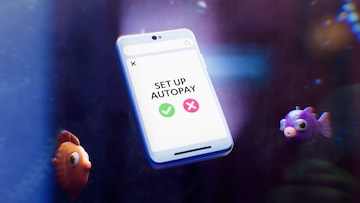
How Do Credit Card Payments Work?
January 31, 2024
If you’re new to credit cards, understanding how payments work can be confusing. But understanding the process is key to healthy credit habits.

Introduction
If you’re new to credit cards, you may not be familiar with how credit card payments work. The process is not complicated, but it’s important to understand it because your payment history is one of the most important factors in determining your credit score.
Here’s how credit card payments work.
1. Your Billing Cycle Ends
Credit cards typically have monthly billing cycles. A billing cycle, also known as a billing period, is the length of time from one payment due date to the next. So, if your credit card due date is the 20th of the month, then the billing cycle would be from the 21st of the month through the 20th of the following month. All purchases made with that card — plus any fees, interest accrued, or other transactions — during that time period should appear on that billing cycle’s statement.
So, using the same closing date example, say you made $300 in purchases between April 21 and May 20. Your credit card statement for that billing cycle should include those purchases, plus any interest or fees accrued during that time period. Your credit card statement will tell you your exact balance as of the billing cycle closing date, plus the minimum amount you must pay in order to keep your account current.
If you activate a brand-new credit card that doesn’t have a balance on it yet, and you don’t make any purchases or transactions with it during the first billing cycle, your balance at the end of the billing cycle should be $0 — unless the card has an annual fee (including an annual fee billed monthly) or other fees associated with it that are billed during that cycle. If you were to make $300 in charges during the first billing cycle of that same card, your balance would be $300 plus any fees or interest accrued during that billing cycle.
2. Your Credit Card Statement Is Generated & Delivered
Once your billing cycle ends, the credit card issuer generates a bill, or statement, for you. A statement contains lots of useful information, including a breakdown of transactions made during the billing cycle. But the information you will need to make a payment includes the balance owed as of the billing cycle’s closing date, the minimum amount due, the date by which the payment must be received, and forms of acceptable payment, such as check, electronic withdrawal from a savings or checking account, debit card, etc.
A credit card statement may be mailed, emailed, or made available to a cardmember electronically online or via a card issuer’s mobile app, depending on the creditor’s policies and/or any preferences set by a cardmember.
3. You Have at Least 21 Days to Make a Payment
By law (the CARD Act of 2009), a cardmember must have at least 21 days from the time a credit card statement is “mailed or delivered” to make their payment. If you agree to receive electronic statements, many credit card issuers make statements available on the billing cycle closing date — also known as the statement closing date — so it makes sense to use that date as the delivery date. Which means, if your billing cycle closes on the 20th of the month and your statement is made available that same day, you have at least 21 days from that date, by law, to get your payment in. It may not be exactly 21 days, as some credit card companies offer more than the minimum requirement. As previously mentioned, your statement will clearly list your payment due date.
It’s important to mention that the payment due date is the date by which the payment must be received by the card issuer, not the date by which you must send it. So, if your payment due date is the 15th of the month, then the card issuer should have your payment in hand by then for it to be considered on time.
If you’re going to mail a payment, leave adequate time for it to reach its destination. If you’re going to make a payment online or via mobile app, it’s a good idea not to wait until the last moment, as there could be technical difficulties or other issues. And, if you’re going to make a payment via check, debit card, or direct withdrawal from a bank account, make sure you have enough money in your account to cover the payment. An on-time payment with insufficient funds to cover the payment counts as a missed payment.
4. You Must Pay at Least the Minimum Amount Due
Did you know that even if you make a payment on time, if it’s for less than the minimum amount due, it’s still considered a missed payment? That’s why, when you make your credit card payment, it must be for at least the minimum amount due as specified on your statement.
While making only the minimum payment due will keep your account in good standing, it will take you longer to pay off your credit card’s balance and, by the time you do so, you will have paid more in interest than if you’d made larger payments. In fact, the CARD Act requires card issuers to provide a “minimum payment warning” on every statement that tells you how long it will take you to pay off your current balance, as well as how much interest you’ll end up paying, if you continue to make only the minimum payment each month.
If your credit card has a grace period, and your billing cycle started with a $0 balance, and you pay the balance owed for all purchases made during that billing cycle on time, those purchases are essentially interest-free. If your card doesn’t have a grace period, you’ll still pay interest on them, but less than you would if you carry a balance from one billing cycle into the next.
5. Repeat Cycle – Build a Positive Payment History
Consistency is key in making credit card payments. If you consistently make payments of at least the minimum amount due on time, every time, that could go a long way toward helping you build a positive payment history. And a positive payment history can play a significant role in calculating your credit scores (yes, most consumers have more than one credit score).
On the other hand, if you’re consistently late with your credit card payments, or pay less than the minimum amount due, that can go a long way toward building a negative payment history, which won’t help your credit scores at all. In fact, you don’t even have to be consistent with being late or cavalier with your credit card payments. A single late payment could stay in your credit reports for up to seven years and significantly affect your credit scores.
So, perhaps the most important thing to know about credit card payments is that being consistently responsible in making them on time and for the right amount is a sound strategy.
FAQ
How long does a credit card payment take to process?
The amount of time it takes for your credit card payment to process depends on several factors, including how you pay, when you pay, your credit card issuer, and your bank.
Making an electronic payment, perhaps online or through your mobile app, should process quicker — typically one to three business days — than if you send a check through the mail, which is dependent on the delivery of the check and the issuer opening up your envelope amongst the hundreds of others received.
The best way to know when a credit card payment will be processed is to contact your issuer and ask.
How to cancel a credit card payment
If by canceling a payment, you mean you need to dispute a credit card purchase — maybe because of a billing error — there are some steps you can take.
First, contact the merchant and try to resolve the issue with them. They may issue you a refund. If that doesn’t work, you can contact your credit issuer, dispute the charge, and request it be reversed. This is called a chargeback.
Just know that the process for a credit card refund may take a little bit longer compared to a cash or debit card transaction. And be aware that you still need to pay your credit card balance while you wait for your refund to process.
If you’re looking to cancel a scheduled credit card payment or stop a pending payment — maybe you accidentally paid the full amount when you wanted to pay less — call the number on the back of your card and talk to a customer service agent about what can be done. Be sure to get the agent’s name and a confirmation number and take good notes. And verify later to make sure the payment was indeed canceled.
What happens if you miss a payment on a credit card?
Making timely payments is the most important thing you can do to build your credit score. So, missing a credit card payment can have the opposite effect and put a ding on your credit score. Missing a payment may also result in a late fee and/or a penalty APR.
Ready to start building credit history with a Credit One Bank credit card? See if you pre-qualify in less than 60 seconds—without harming your credit score.
With his eyes set on becoming the next great ad man (at least until his comedy writing career took off), Marc earned his journalism degree and went straight into advertising for various gaming and tourism clients. He later expanded his credentials to include public affairs and communications work for several environmental science organizations before returning to his marketing roots. A lifelong scholar with recent studies in strategic communication, Marc enjoys tying humor into his writing and simplifying complex financial subjects into engaging and easy-to-digest content for a wide variety of audiences.



